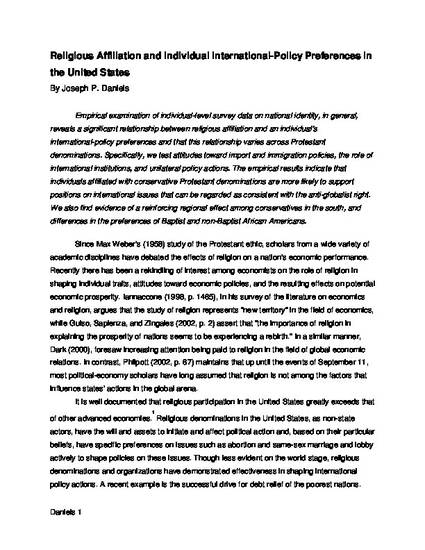
Empirical examination of individual-level survey data on national identity, in general, reveals a significant relationship between religious affiliation and an individual’s international-policy preferences and that this relationship varies across Protestant denominations. Specifically, we test attitudes toward import and immigration policies, the role of international institutions, and unilateral policy actions. The empirical results indicate that individuals affiliated with conservative Protestant denominations are more likely to support positions on international issues that can be regarded as consistent with the anti-globalist right. We also find evidence of a reinforcing regional effect among conservatives in the south, and differences in the preferences of Baptist and non-Baptist African Americans.
Available at: http://works.bepress.com/joseph_daniels/45/

Accepted version. International Interactions, Vol. 31, No. 4 (October 2005): 273-301. DOI. © 2005 Taylor & Francis (Routledge). Used with permission.